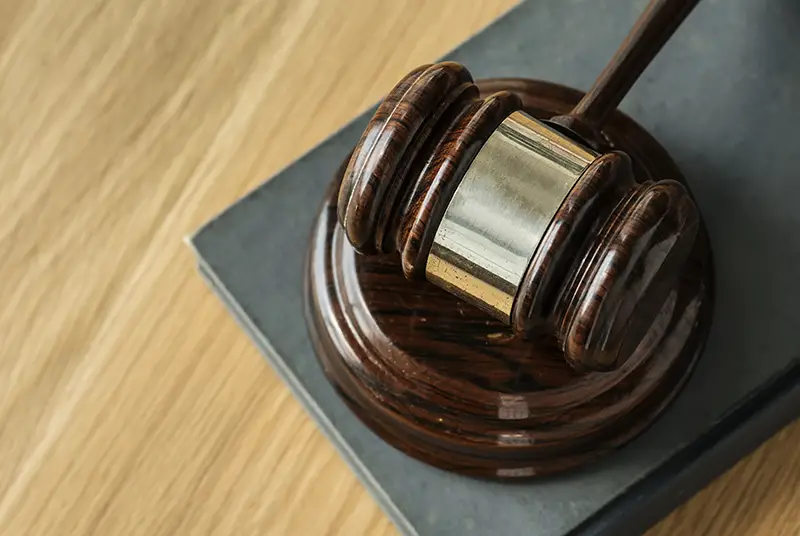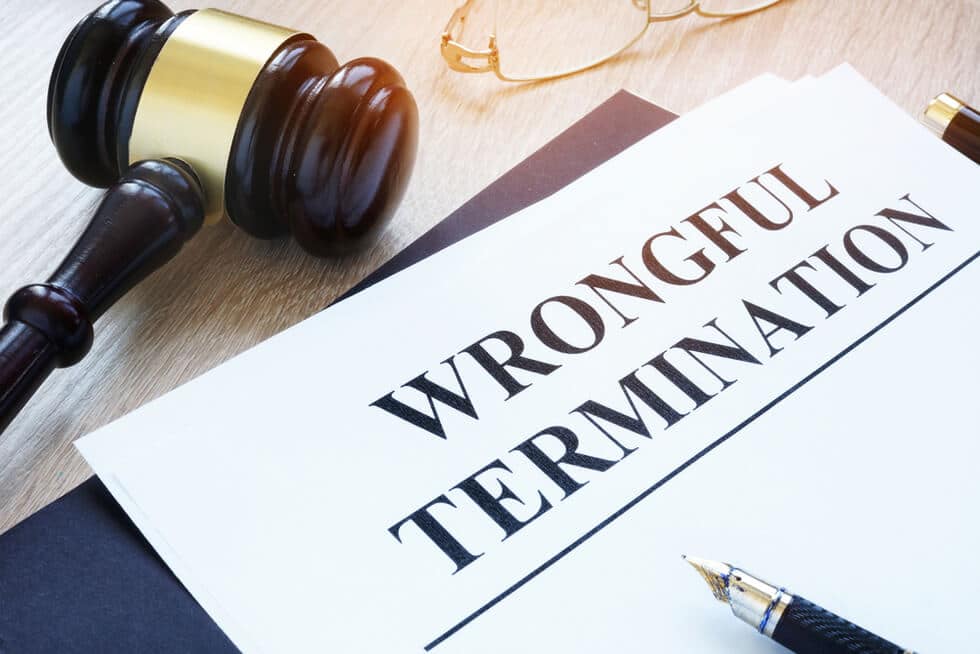The person who believes they were unjustly or illegally fired from their job files a wrongful termination lawsuit in a court of law. Wrongful termination claims involve allegations of a violation of federal or state anti-discrimination laws, oral and written employment agreements/contracts, or labor laws, including collective bargaining laws and whistleblower laws. A wrongful termination claim may also be filed by employees who feel their termination was the result of sexual harassment or in retaliation for filing a complaint against the employer.
An Overview of Wrongful Termination Claims
Employment in the United States is generally considered “at will,” which means that employers don’t need to have a reason or give advance notice of termination (though many do, to allow workers to obtain COBRA health benefits and unemployment insurance benefits). However, employment-at-will does not mean that employers can terminate employees at their discretion. People shouldn’t be fired for certain reasons or motives, especially if it’s a violation of state or federal law or a breach of contract of some sort.
Those who feel their involuntary dismissal was a violation of this provision can file a wrongful termination claim against their employer. A wrongful termination claim is similar to a lawsuit, in that the employee seeks compensation from their former company for being unfairly terminated.
Wrongful termination Los Angeles claim may result in monetary damages based on lost wages, job-hunting costs, and other expenses if the employee prevails. In addition, an employee may request to have their job restored or be given a comparable position. According to the grounds of the claim (see below), the employer might also be subject to statutory penalties.

What You Should Do If You Are Terminated Wrongfully
As a first step, an employee should read the original agreement letter or employment contract to find out what rights and resources they have available (and to verify if all conditions and promises surrounding their employment and dismissal were met).
Additionally, they may want to hold off on signing any type of severance agreement with their former employer, especially if it expressly waives their right to file a claim or seek legal redress.
A worker who believes that he or she has been unlawfully dismissed should consult a lawyer-either a labor lawyer or an employment law/employees’ rights lawyer-for advice on whether they have a claim and for possible representation. State and federal laws have different filing deadlines. The sooner you file, the better.
If possible, individuals should ask for a copy of their personnel file, to learn who fired them; who approved it; and any documents such as warning letters, status reports, or performance reviews referring or relating to that firing. An attorney reviewing a potential case will find this information useful.





